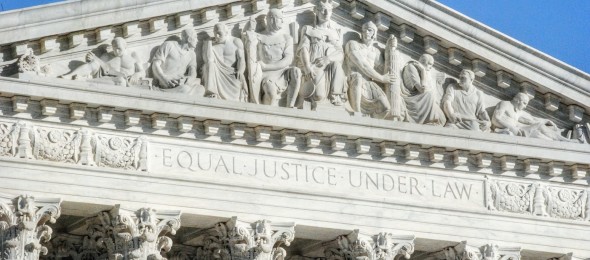Today, the United States Supreme Court delivered a unanimous opinion in Henry Schein, Inc. v. Archer and White Sales, Inc., No. 17-1272 (January 8, 2019). In the case, a district court vacated a magistrate judge’s order stating a valid delegation clause that is included in an agreement to arbitrate must be enforced even if a party’s claim of arbitrability is “wholly groundless.” As described in an earlier Disputing blog post:
Following a hearing, the magistrate judge issued a Memorandum Order holding that: (1) the incorporation of the AAA Rules in the arbitration clause clearly evinced an intent to have the arbitrator decide questions of arbitrability; (2) there is a reasonable construction of the arbitration clause that would call for arbitration in this dispute; and (3) the Grigson equitable estoppel test, which both sides agree is controlling in their dispute, required arbitration against both signatories and non-signatories to the Dealer Agreement.
The district court vacated the magistrate judge’s order and held that the court could decide the question of arbitrability, and that the dispute was not arbitrable because the plain language of the arbitration clause expressly excluded suits that involved requests for injunctive relief. The court declined to reach the question of equitable estoppel.
On appeal, the Fifth Circuit Court of Appeals affirmed the district court’s decision stating “it had the authority to rule on the question of arbitrability and the claims at issue were not arbitrable.” The party seeking arbitration then filed a petition for certiorari with the U.S. Supreme Court.
In June, the nation’s highest court agreed to consider the following question:
Whether the Federal Arbitration Act permits a court to decline to enforce an agreement delegating questions of arbitrability to an arbitrator if the court concludes the claim of arbitrability is “wholly groundless.”
Today, the U.S. Supreme Court vacated the lower court’s holding in an eight-page unanimous opinion:
Under the Federal Arbitration Act, parties to a contract may agree that an arbitrator rather than a court will resolve disputes arising out of the contract. When a dispute arises, the parties sometimes may disagree not only about the merits of the dispute but also about the threshold arbitrability question—that is, whether their arbitration agreement applies to the particular dispute. Who decides that threshold arbitrability question? Under the Act and this Court’s cases, the question of who decides arbitrability is itself a question of contract. The Act allows parties to agree by contract that an arbitrator, rather than a court, will resolve threshold arbitrability questions as well as underlying merits disputes. Rent-A-Center, West, Inc. v. Jackson, 561 U. S. 63, 68-70 (2010); First Options of Chicago, Inc. v. Kaplan, 514 U. S. 938, 943-944 (1995).
Even when a contract delegates the arbitrability question to an arbitrator, some federal courts nonetheless will short-circuit the process and decide the arbitrability question themselves if the argument that the arbitration agreement applies to the particular dispute is “wholly groundless.” The question presented in this case is whether the “wholly groundless” exception is consistent with the Federal Arbitration Act. We conclude that it is not. The Act does not contain a “wholly groundless” exception, and we are not at liberty to rewrite the statute passed by Congress and signed by the President. When the parties’ contract delegates the arbitrability question to an arbitrator, the courts must respect the parties’ decision as embodied in the contract. We vacate the contrary judgment of the Court of Appeals.
The high court’s decision in Henry Schein resolves a split among the Circuit Courts of Appeal and makes clear a court may not decide the issue of arbitrability if the parties have contracted otherwise or incorporated arbitral rules that delegate the issue of arbitrability to an arbitrator even in situations where the arbitration claim is deemed to be “wholly groundless.”
You may read the entire Henry Schein opinion on the Supreme Court’s website.
Photo by: Matt Schwartz on Unsplash














